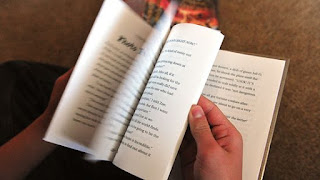Mentoring
+ Partnership = An Exciting Publishing Model
Guest post by Lindsay Harrell
Not only that, but it’s so easy to feel like writing is a solitary endeavor. It can be lonely holed up in your office at home, plugging away at your computer, day after day.
I know personally that I wouldn’t be where I am in my publishing journey if those who had gone ahead of me hadn’t taken the time and energy to slow down, reach back, and guide me through some of the more difficult hurdles of the course.
Susan May Warren is one of those authors. Through her organization, My Book Therapy, she has been in the business of teaching authors to get published, stay published, and build brilliant careers. And, it’s worked—every year she has seen more of her students published, winning awards, and going on to flourish.
I have been blessed to be one such author!
One of a mentor’s key characteristics is a heart for others, and Susie has that in spades. We got together this summer and started talking about ways to help other authors who are ready to be published but having a difficult time finding their place in the crowded market, and Susie shared a vision with me.
The awesome thing about visions? Sometimes, they become reality. In this case, the vision Susie and I discussed has grown into Sunrise Publishing—a publishing venture that combines mentorship and partnership between established authors and newer authors.
Sunrise is the dawn of a new kind of publishing (one that has actually been around for a long time, thanks to James Patterson and so many other authors who have partnered with aspiring authors to help them build their readership!). It’s designed to help launch new or rebooting authors into the readership of an existing author, build the existing fictional world of the lead author, and offer readers a remedy to the story hole they are seeking to fill.
Here’s how it works: Every year Sunrise will choose a lead author in one particular genre. (Susie will be the lead author in year one, so we can work out the kinks!) Once we decide on the kind of stories the lead author is looking for, we put out a request for submissions. (You can see our submission process here.)
Once the lead author picks the draft authors, they will start working on stories. Over the course of the year, the lead author will mentor the draft authors (with the help of Sunrise) to create six novels.
These novels will be traditionally published (print, ebook, and audio) over the course of the following year on all platforms. (We will be using Kindle Unlimited as part of our publishing plan as well.)
Our main criteria is voice. We are not looking for someone with a platform, but instead, draft authors who are interested in learning, understand the basics of writing, and are willing to work hard. Most of all, we are looking for serious authors who want to launch their careers.
If you feel you know an author, ARE an author, or represent an author who fits this criteria, check out our opportunities this year at https://sunrisepublishing.com. Submissions for our first series are due November 10th. (If you have any questions, I’d love to hear from you at lindsay@sunrisepublishing.com.)
I know that whoever gets to work with Susie next year will be so incredibly blessed!
At Sunrise, our hope is to offer authors two things that they might currently be missing: a clear place in the market—with lots of new readers—and the clear knowledge that they are not alone on this publishing journey.
Here’s to the dawning of a new day!
Who has been a mentor in your writing career? Does Sunrise Publishing sound like an intriguing opportunity you might be interested in?
Lindsay Harrel is a CBA best-selling novelist and lifelong book nerd who lives in Arizona with her young family and two golden retrievers in serious need of training. With more than 13 years of editing and writing experience, Lindsay now juggles stay-at-home mommyhood with writing novels for HarperCollins Christian Publishing and working as Editorial Director at Sunrise Publishing. She has a passion for not only helping authors improve their stories and find their voice, but also getting messages of hope out into the world. Connect with her at www.LindsayHarrel.com.




















.jpg)
.JPG)
.JPG)
.JPG)





 Who says main characters get all the attention?
Who says main characters get all the attention?






























